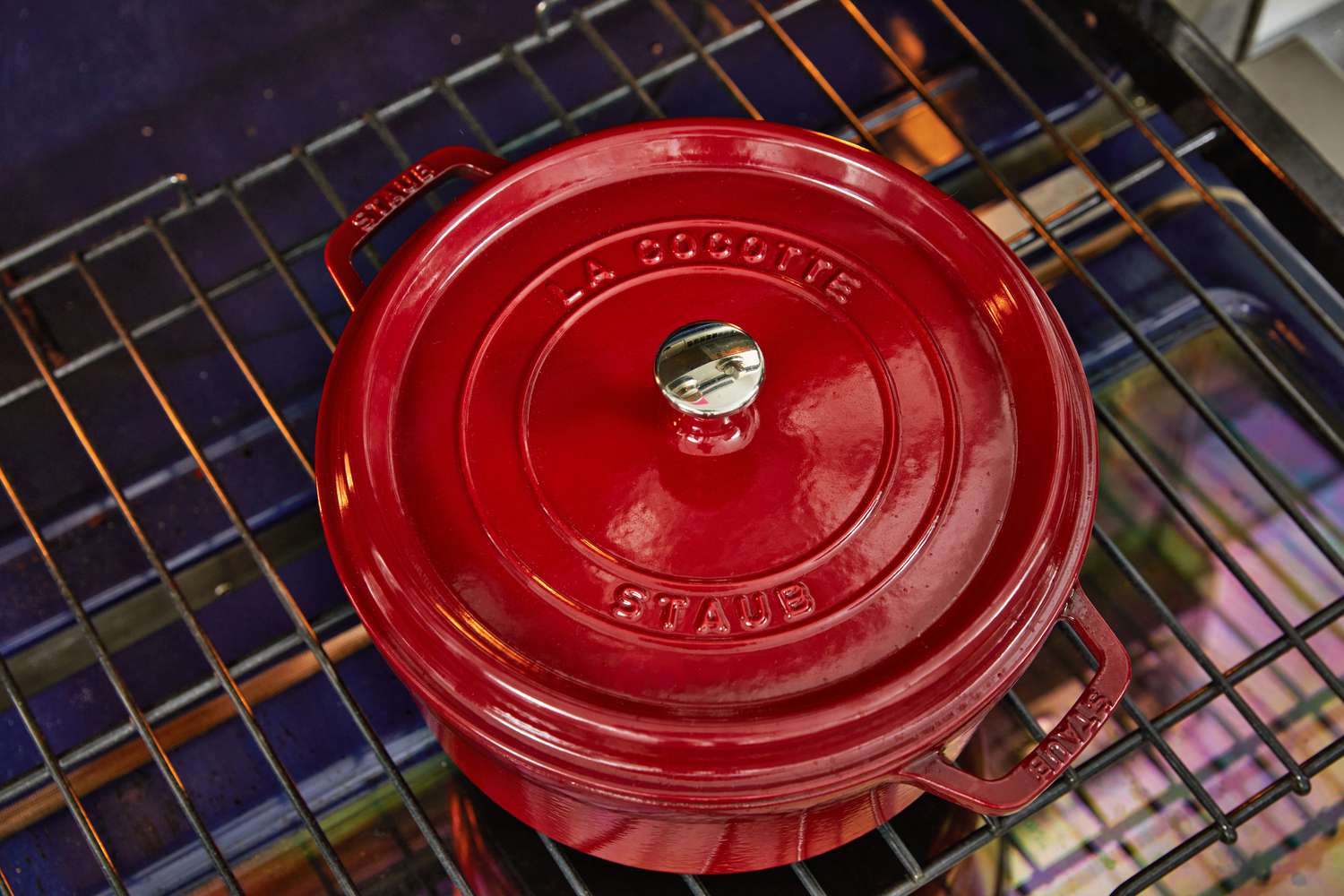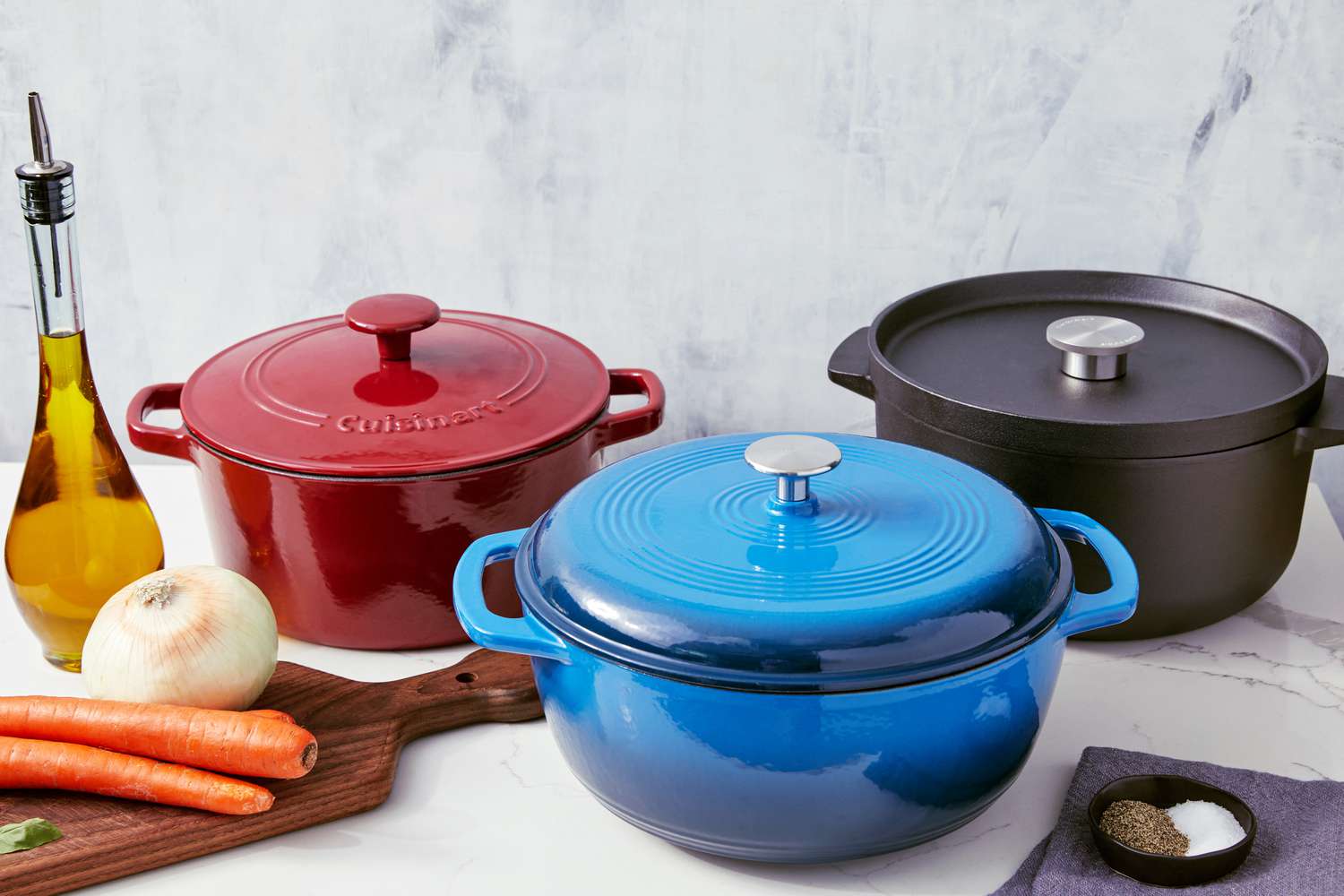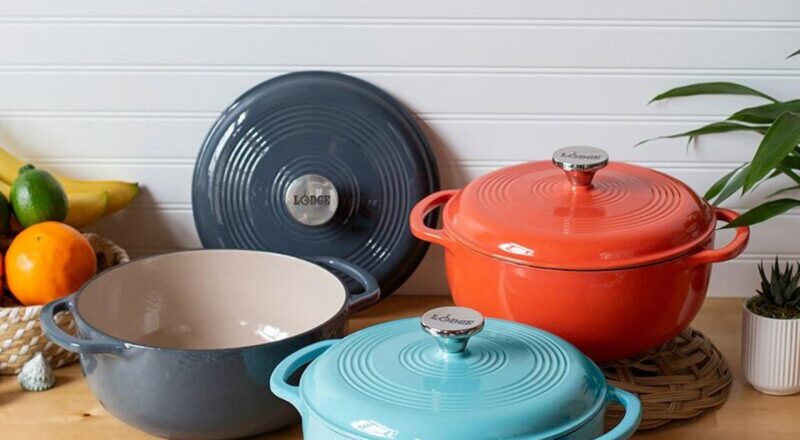Seasoning a Dutch oven is an essential skill for any house owner or renter who loves cooking delicious meals. Dutch ovens are versatile, long-lasting, and perfect for a wide range of recipes, from soups and stews to baking bread. However, to get the most out of your Dutch oven, you need to season it properly. In this article, we will provide you with tremendous tips and approved methods for seasoning your Dutch oven.

What is Seasoning?
Seasoning is the process of creating a non-stick coating on the surface of your Dutch oven. This coating is achieved by applying oil to the surface and then heating it. The oil bonds with the metal, creating a protective layer that prevents rusting and makes cooking and cleaning easier.

Why is Seasoning Important?
Seasoning your Dutch oven is important for several reasons. First, it prevents rusting. Cast iron, which Dutch ovens are often made of, is prone to rust if not properly cared for. Second, seasoning creates a natural non-stick surface, making cooking and cleaning much easier. Finally, a well-seasoned Dutch oven enhances the flavor of your food, giving it a unique and delicious taste.

Initial Cleaning
Before you season your Dutch oven, you need to give it a thorough cleaning. Use mild dish soap and a soft brush to remove any residue from manufacturing or previous use. Rinse it well and dry it completely with a clean cloth or paper towel.

Choosing the Right Oil
Choosing the right oil is crucial for effective seasoning. The most commonly used oils are vegetable oil, flaxseed oil, and grapeseed oil. These oils have a high smoke point and polymerize well, creating a strong and durable coating.
Applying the Oil
Once your Dutch oven is clean and dry, it’s time to apply the oil. Pour a small amount of oil onto a cloth or paper towel and rub it all over the interior and exterior surfaces of the oven. Make sure to apply a thin, even layer, as too much oil can result in a sticky surface.
Heating the Dutch Oven
After applying the oil, place your Dutch oven in the oven upside down to prevent oil from pooling. Preheat your oven to 375F (190C), and let the Dutch oven bake for about an hour. This will allow the oil to bond with the metal, creating the desired non-stick coating. Once the hour is up, turn off the oven and let the Dutch oven cool completely before removing it.
Repeating the Process
For the best results, repeat the seasoning process two or three times. This will help ensure a strong and durable non-stick coating. After each round of seasoning, your Dutch oven will become more resistant to rust and easier to cook with.
Maintaining the Seasoning
Maintaining the seasoning on your Dutch oven is crucial for its longevity. Avoid using harsh detergents or metal scrubbers, as these can strip away the seasoning. Instead, use a soft sponge and mild dish soap for cleaning. After each use, apply a light coat of oil to maintain the non-stick surface and prevent rusting.
Regular Use
Regular use of your Dutch oven will help maintain its seasoning. The more you cook with it, the better the seasoning will become. Avoid cooking acidic foods, such as tomatoes or citrus, as these can break down the seasoning. If you do cook acidic foods, be sure to re-season your Dutch oven afterwards.
Storing Your Dutch Oven
Proper storage is also important for maintaining the seasoning. Store your Dutch oven in a dry place with the lid slightly ajar to allow air circulation. This will help prevent moisture buildup, which can lead to rust.
Common Mistakes to Avoid
There are a few common mistakes that people make when seasoning their Dutch oven. First, using too much oil can result in a sticky surface. Be sure to apply a thin, even layer of oil. Second, not heating the oven long enough can prevent the oil from properly bonding with the metal. Be sure to let it bake for at least an hour. Finally, not maintaining the seasoning can lead to rust and a loss of the non-stick surface. Be sure to clean and oil your Dutch oven regularly.
FAQs
How often should I season my Dutch oven?
It’s recommended to season your Dutch oven at least once a year, or more often if you use it frequently.
Can I use my Dutch oven on a glass-top stove?
Yes, you can use a Dutch oven on a glass-top stove. Just be sure to lift it instead of sliding it to avoid scratching the surface. For more tips on protecting your glass-top stove, check out our guide on protecting glass-top stove.
What should I do if my Dutch oven gets rusty?
If your Dutch oven gets rusty, don’t worry. Simply scrub off the rust with a soft brush and mild soap, then re-season it using the steps outlined in this article.
What other foods can i cook in cast iron skillet
There are various foods you can make Refer to these 10 dishes for more options.
As an Amazon Associate, I earn from qualifying purchases.

